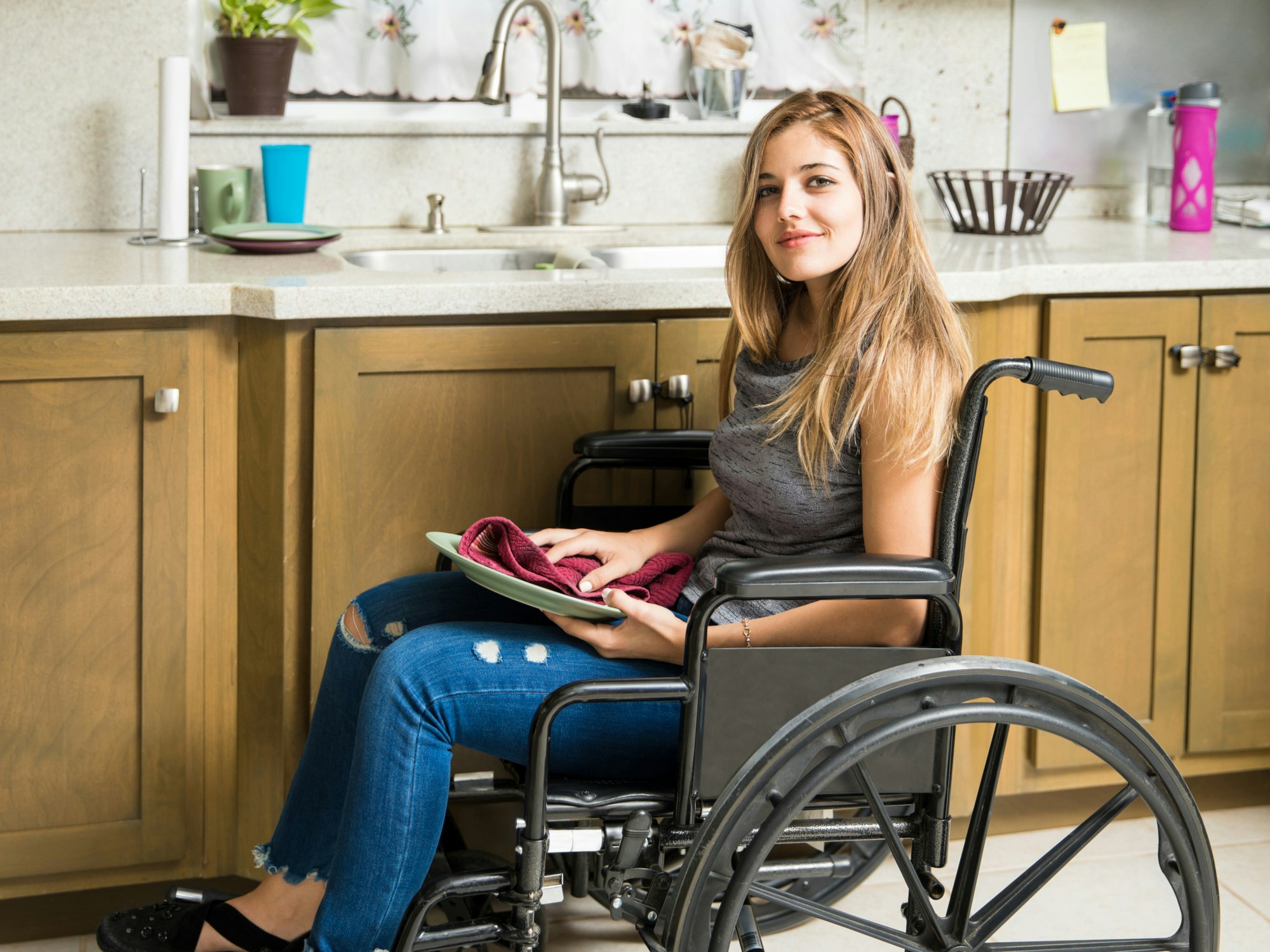A chronic shortage of affordable private rentals leaving people with disability behind

The 2020 Anglicare Australia Rental Affordability Snapshot has revealed a chronic shortage of affordable private rentals in Australia and that people with disability are being left behind.
Anglicare Australia has today released the 2020 Rental Affordability Snapshot for people on welfare payments as they call for a permanent increase to welfare payments.
The Snapshot surveyed 70,000 private rental listings over the weekend of 21 March 2020, just days before Federal, State and Territory Governments introduced measures in response to the COVID-19 outbreak, including the $550 a fortnight coronavirus supplement.
People with disability receiving the Disability Support Pension (DSP) are currently not eligible to receive the increase to their payment.
The Rental Snapshot found that there is a chronic shortage of affordable rentals and that people with disability are being left behind.
A property is considered affordable if the rent is less than 30 percent of someone’s income.
Of the 70,000 rentals surveyed in the Snapshot, only 0.5 percent of rentals, 326 out of 69,997, in Australia are affordable for someone receiving the Disability Support Pension (DSP).
Anglicare Australia Executive Director, Kasy Chambers says that the current increase to some welfare payments should be permanent and made available to everyone.
“Age pensioners and people with disability have been left out altogether. They are at the very bottom of the market, and can afford just 1% of rentals. Instead of looking after them in the midst of a health crisis, we are leaving them to the mercy of the market.
“We must raise the rate of these payments for good. If they are halved in six months – and if pensioners and people with disability are left out – renters will be pushed even deeper into poverty and homelessness.”
With close to 750,000 Australians receiving the DSP, COVID-19 is highlighting the ever urgent need for affordable housing for people with disabilities.
Jeff Smith, Chief Executive Officer of People with Disabilities Australia (PWDA), says, “Yet again, the Anglicare Rental Snapshot shows how urgent the housing crisis is for many people with disability who rent. This year, less than 0.5% of properties are affordable and appropriate for people with disability.”
Mr Smith adds that strong action needs to be taken to ensure people with disability can access housing that is both affordable and accessible.
“People with disability missed out on the coronavirus supplement, leaving them further behind as housing gets more and more expensive. People with disability need strong action to create more affordable and accessible housing, and we need it now.”
A house so small, you “couldn’t swing a cat.”
Kevin* from South West Western Australia (WA) receives the Disability Support Pension and says that he is just looking for stability after having already moved a few times this year, renting rooms in people’s houses and staying in a lodging house.
With Kevin saying one place was so small, you “couldn’t swing a cat in it”.
Only one property (0%) out of 685 in South West WA is affordable for him.
Kevin, who is not eligible to receive the coronavirus supplement, would have to pay 72 percent of his weekly income to afford the median rent of $330 a week in the South West and Great Southern WA.
Kevin says he has spent years of bouncing around and is just looking for stability.
“I just want a home. I haven’t had one in a long time.”
*Names have been changed.
COVID-19 crisis highlights need to fix the welfare system
The COVID-19 crisis and the chronic lack of affordable rentals is leading to calls for changes to the welfare system beyond the COVID-19 crisis.
Dr Cassandra Goldie, CEO of the Australian Council of Social Service, says, “We should all be able [to] put a roof over head and food on the table. This crisis has made it crystal clear that we need a permanent fix to our income support system, which was not working.”
Sophie Trevitt, a spokesperson for Canberra Community Law, agrees that change is needed both to defend against COVID-19, but to protect tenants.
“Right now our best defence against the Coronavirus is for everyone to have somewhere safe and secure to live. It is imperative that State, Territory and Commonwealth Governments take this public health and housing emergency seriously and protect tenants from homelessness and eviction, and ensure that our social security system is helping – not punishing – people doing it tough.”
Anglicare Australia itself is calling for changes to the welfare system with Ms Chambers saying more must be done to help people on the lowest incomes.
“We’re calling on the Government to end this shortfall – and ensure everyone has a place to call home.”
Changes to the welfare system Anglicare Australia are calling for include:
-
A permanent adoption of the $275 per week increase for Jobseeker, Youth Allowance, Austudy and Parenting Payment recipients
-
An expansion of the increase to cover people on the Disability Support Pension, Carers and Aged Pensioners with accommodation costs
-
An extension of the Jobseeker Payment to cover migrants, people seeking asylum, and international students
-
The creation of an Independent Social Security Commission to review and set government income payments
Visit the Anglicare Australia website to read the full 2020 Rental Affordability Snapshot.
You can also visit our dedicated COVID-19 information page for the latest updates on how COVID-19 is impacting the disability sector.
Have you had issues accessing affordable rentals? Tell us in the comments below or email us at [email protected].